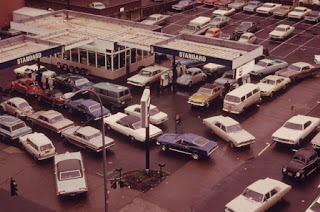What was supposed to be the mother of all climate marches was scotched after terrorist attacks shook Paris and left it in a state of emergency on the eve of the global climate negotiations, COP21, the 21st Conference of the Parties.
That didn't stop people from taking to the streets. In Paris, thousands of people joined hands all along the route planned for the march. 20,000 pairs of shoes were placed on the Place de la République, symbolising the marchers who were banned from marching on the streets.
Thousands leave shoes in #Paris square to symbolize banned climate march https://t.co/BIyegYbpw7 pic.twitter.com/yszT2OrBcv
— HuffPost Canada (@HuffPostCanada) November 29, 2015But streets elsewhere did see marchers. 785,000 of them, according to organizer Avaaz, in thousands of cities large and small, from Alaska to the Antarctic, from Melbourne to Mumbai to Mexico City. If the large march in Paris had happened, the total would beat one million people. That's huge.
And what a march!
















.jpg)
















